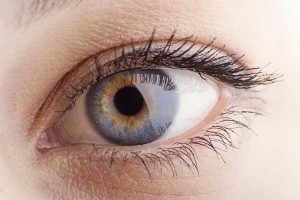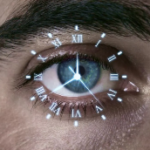Type 2 Diabetes & Your Vision

All About Eyes…Ask an Ophthalmologist
By: David Rabady, M.D. Ophthalmologist & Retina Specialist
Ophthalmic Consultants of the Capital Region
Q. I was recently diagnosed with type 2 diabetes. Will my eyesight be affected?
A. Diabetes is a disease that affects all areas of your body—including your eyes. Eye care is especially important for people with diabetes because they are at an increased risk of developing eye complications from diabetes. Some of the eye complications you may be more at risk for developing include:
Diabetic Retinopathy
Diabetic retinopathy is a disease of the small blood vessels that nourish the retina. It is especially prevalent in Type I or insulin dependent diabetics. In some cases, blood vessels weaken and can begin to leak fluid, fatty or protein deposits, and blood, reducing the nourishment to the retina. The longer you’ve had diabetes, the more likely you are to have retinopathy. Almost everyone with type 1 diabetes will eventually have nonproliferative retinopathy. And most people with type 2 diabetes will also get it. But the retinopathy that destroys vision, proliferative retinopathy, is far less common.
Glaucoma
People with diabetes are 40 percent more likely to suffer from glaucoma than people without diabetes. The longer someone has had diabetes, the more common glaucoma is. Risk also increases with age.
Cataracts
People with diabetes are 60 percent more likely to develop cataracts. People with diabetes also tend to get cataracts at a younger age and have them progress faster.
Macular Edema
The capillary walls in your eyes may lose their ability to control the passage of substances between the blood and the retina. Fluid can leak into the part of the eye where focusing occurs, the macula. When the macula swells with fluid, it creates a condition called macula edema, in which vision blurs and can be lost entirely. Macular edema can be treated, and treatment is usually effective at stopping and sometimes reversing vision loss.
Annual Comprehensive Eye Exams
Many diabetic eye diseases have few symptoms. Early detection and treatment can help stop vision loss. People with diabetes should get a comprehensive dilated eye exam at least once a year. It’s also important to keep your blood sugar levels as close to normal as possible, control high blood pressure and cholesterol levels to reduce the risk of vision loss if you have diabetes.
Ophthalmic Consultants of the Capital Region offers a comprehensive model of eye care with experienced specialists, ophthalmologists & optometrists. Locations in Albany, Clifton Park, Schenectady, Schodack, and Troy. To make an appointment call 777-2777 or visit myoccr.com.

